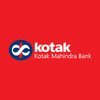Credit Processing Associate
20+ Credit Processing Associate Interview Questions and Answers

Asked in Kotak Mahindra Bank

Q. What is the formula for Cost of Goods Sold?
The formula for Cost of Goods Sold (COGS) is the beginning inventory plus purchases minus ending inventory.
COGS = Beginning Inventory + Purchases - Ending Inventory
Beginning Inventory refers to the value of inventory at the start of the accounting period
Purchases represent the cost of additional inventory acquired during the period
Ending Inventory is the value of inventory at the end of the accounting period
COGS is an important measure for businesses to calculate their profit...read more

Asked in PNB Housing Finance

Q. Describe your financial knowledge regarding salaried and self-employed individuals, including how to calculate monthly income based on income documentation.
Understanding income calculation for salaried and self-employed individuals is crucial for credit assessment.
For salaried individuals, use the gross monthly salary stated in the payslip or employment letter.
Consider additional income sources like bonuses, overtime, or allowances; for example, if a person earns a base salary of $3,000 and receives a $500 bonus, their total monthly income is $3,500.
For self-employed individuals, calculate average monthly income based on tax ret...read more
Credit Processing Associate Interview Questions and Answers for Freshers

Asked in Kotak Mahindra Bank

Q. What is the difference between AY and FY?
AY and FY are abbreviations used in financial contexts to refer to different time periods.
AY stands for Assessment Year, which is the year in which income is assessed for tax purposes.
FY stands for Financial Year, which is the year in which financial statements are prepared.
AY is used in the context of income tax calculations, while FY is used in the context of financial reporting.
For example, if the financial year is April 2021 to March 2022, the assessment year would be 202...read more

Asked in ICICI Bank

Q. What do you know about the banking industry?
The banking industry deals with financial transactions, loans, investments, and other financial services.
Banks provide financial services such as checking and savings accounts, loans, credit cards, and investment opportunities.
The industry is heavily regulated by government agencies such as the Federal Reserve and FDIC.
Banks play a crucial role in the economy by providing capital for businesses and individuals.
The industry has undergone significant changes in recent years wit...read more

Asked in Axis Bank

Q. Where is turnover recorded on the balance sheet?
Turnover is not specifically written in the balance sheet, but it can be calculated using information from the income statement.
Turnover is typically calculated as the total sales revenue generated by a company during a specific period.
To calculate turnover, you would look at the income statement to find the total sales revenue and divide it by the average total assets for the same period.
The resulting turnover ratio provides insight into how efficiently a company is utilizin...read more

Asked in GoTo

Q. What is the difference between accounting and finance?
Accounting focuses on recording financial transactions, while finance involves managing assets and investments for future growth.
Accounting is primarily concerned with the accurate recording of financial transactions, such as sales and expenses.
Finance deals with the management of assets and liabilities, including investment strategies and capital allocation.
Example of accounting: Preparing financial statements like balance sheets and income statements.
Example of finance: Ana...read more
Credit Processing Associate Jobs



Asked in Axis Bank

Q. Do you know how to analyze a company's financials?
Yes, I know how to study a company's financials.
Start by reviewing the company's annual reports, 10-K filings, and quarterly earnings reports.
Analyze key financial statements such as the income statement, balance sheet, and cash flow statement.
Look for important financial ratios like profitability ratios, liquidity ratios, and leverage ratios.
Compare the company's financial performance to industry benchmarks and competitors.
Consider qualitative factors such as market trends, ...read more

Asked in Kotak Mahindra Bank

Q. Do you have knowledge of the banking industry?
Yes, I have knowledge of the banking industry.
I have a degree in finance and have worked in banking for 5 years.
I am familiar with banking regulations and procedures.
I have experience in credit processing and loan approvals.
I have attended industry conferences and workshops to stay updated on industry trends.
Share interview questions and help millions of jobseekers 🌟


Asked in Kotak Mahindra Bank

Q. Have you ever seen audited financial statements?
Yes, I have seen audited financial statements during my previous role as a financial analyst.
Yes, I have reviewed audited financial statements as part of my job responsibilities.
I have experience analyzing financial data and ensuring accuracy in financial reports.
I am familiar with the process of auditing financial statements to ensure compliance with regulations and standards.

Asked in Kotak Mahindra Bank

Q. What is profit?
The profit is the financial gain obtained by subtracting the total cost from the total revenue.
Profit = Total Revenue - Total Cost
It is a measure of financial success for a business or individual
It can be expressed as a percentage of revenue or cost
Example: If a company earns $100,000 in revenue and incurs $80,000 in costs, the profit is $20,000
Example: If a product costs $50 to produce and is sold for $75, the profit is $25

Asked in Protium Finance

Q. What is LTV in a LAP product?
LTV in LAP product refers to Loan to Value ratio in Loan Against Property product.
LTV is a financial term used to assess the risk of a loan by comparing the loan amount to the value of the property being used as collateral.
In LAP product, LTV ratio determines the maximum amount of loan that can be sanctioned based on the value of the property.
For example, if the LTV ratio for a LAP product is 70%, it means that a borrower can get a loan amount up to 70% of the property's valu...read more

Asked in Protium Finance

Q. What about LAP Product
LAP product refers to Loan Against Property, where individuals can avail a loan by mortgaging their property.
LAP product allows individuals to borrow money by using their property as collateral
Interest rates for LAP products are usually lower than personal loans
Lenders may offer higher loan amounts for LAP products compared to other types of loans

Asked in Fasttrack Housing Finance

Q. What are the processes involved in your job?
Processes in my job include credit application review, data entry, customer communication, and payment processing.
Reviewing credit applications for accuracy and completeness
Entering data into the system accurately and efficiently
Communicating with customers regarding their credit applications
Processing payments and updating records accordingly

Asked in Kotak Mahindra Bank

Q. Are you familiar with banking terminology?
Yes, I am familiar with banking terms.
I am familiar with terms like APR, overdraft, collateral, and interest rates.
I understand terms related to credit processing such as credit score, credit limit, and credit utilization.
I am knowledgeable about terms like debit card, savings account, checking account, and loan.
I have experience with terms like mortgage, compound interest, principal, and escrow.

Asked in Tradeshala

Q. What is your understanding of the market?
Yes, I am familiar with the market trends, competitors, and customer preferences.
I regularly research market trends and competitor activities to stay updated
I analyze customer feedback and preferences to understand market demands
I attend industry conferences and networking events to stay connected with market influencers

Asked in Genpact

Q. What is depreciation?
Depreciation is the reduction in value of an asset over time, reflecting wear and tear or obsolescence.
Depreciation accounts for the decrease in value of physical assets like machinery and vehicles.
For example, a delivery truck purchased for $30,000 may depreciate by $3,000 each year.
It is used in accounting to allocate the cost of an asset over its useful life.
Common methods of depreciation include straight-line, declining balance, and units of production.
Depreciation impact...read more

Asked in ICICI Bank

Q. What are fixed assets?
Fixed assets are long-term tangible assets that a company owns and uses in its operations to generate revenue.
Fixed assets are not intended for resale and are expected to provide benefits to the company for more than one year.
Examples of fixed assets include buildings, land, machinery, equipment, and vehicles.
Fixed assets are recorded on a company's balance sheet and are depreciated over their useful lives.
Fixed assets are important for a company's financial health as they re...read more

Asked in Wheels Emi

Q. What is EMI?
EMI stands for Equated Monthly Installment, a fixed payment amount made by a borrower to a lender at a specified date each calendar month.
EMI is commonly used in loans such as home loans, personal loans, and auto loans.
For example, if you take a home loan of $100,000 at an interest rate of 5% for 20 years, your EMI would be approximately $659.
EMIs help borrowers manage their finances by spreading the repayment over a fixed period.
The EMI amount is calculated based on the prin...read more

Asked in Bharti Airtel

Q. What is ROI?
ROI, or Return on Investment, measures the profitability of an investment relative to its cost.
ROI is calculated using the formula: (Net Profit / Cost of Investment) x 100.
A higher ROI indicates a more profitable investment.
For example, if you invest $1,000 and earn $1,200, your ROI is 20%.
ROI can be used to compare the profitability of different investments.
It's important to consider the time frame of the investment when evaluating ROI.

Asked in ICICI Bank

Q. What is Finance?
Finance is the study and management of money, investments, and financial systems to achieve economic goals.
Finance involves budgeting, forecasting, and managing funds effectively.
It encompasses personal finance, corporate finance, and public finance.
Examples include managing a household budget or a company's investment portfolio.
Financial markets, such as stock and bond markets, play a crucial role in finance.
Risk management is a key aspect, involving strategies to mitigate f...read more

Asked in EPAM Systems

Q. Tell me about your experience.
I have extensive experience in credit processing, focusing on accuracy, compliance, and customer service.
Managed credit applications for over 500 clients, ensuring timely processing and adherence to company policies.
Implemented a new tracking system that reduced processing time by 20%, enhancing overall efficiency.
Conducted regular audits to ensure compliance with financial regulations, resulting in zero discrepancies during reviews.
Trained new team members on credit processi...read more
Interview Questions of Similar Designations
Interview Experiences of Popular Companies






Calculate your in-hand salary
Confused about how your in-hand salary is calculated? Enter your annual salary (CTC) and get your in-hand salary


Reviews
Interviews
Salaries
Users










